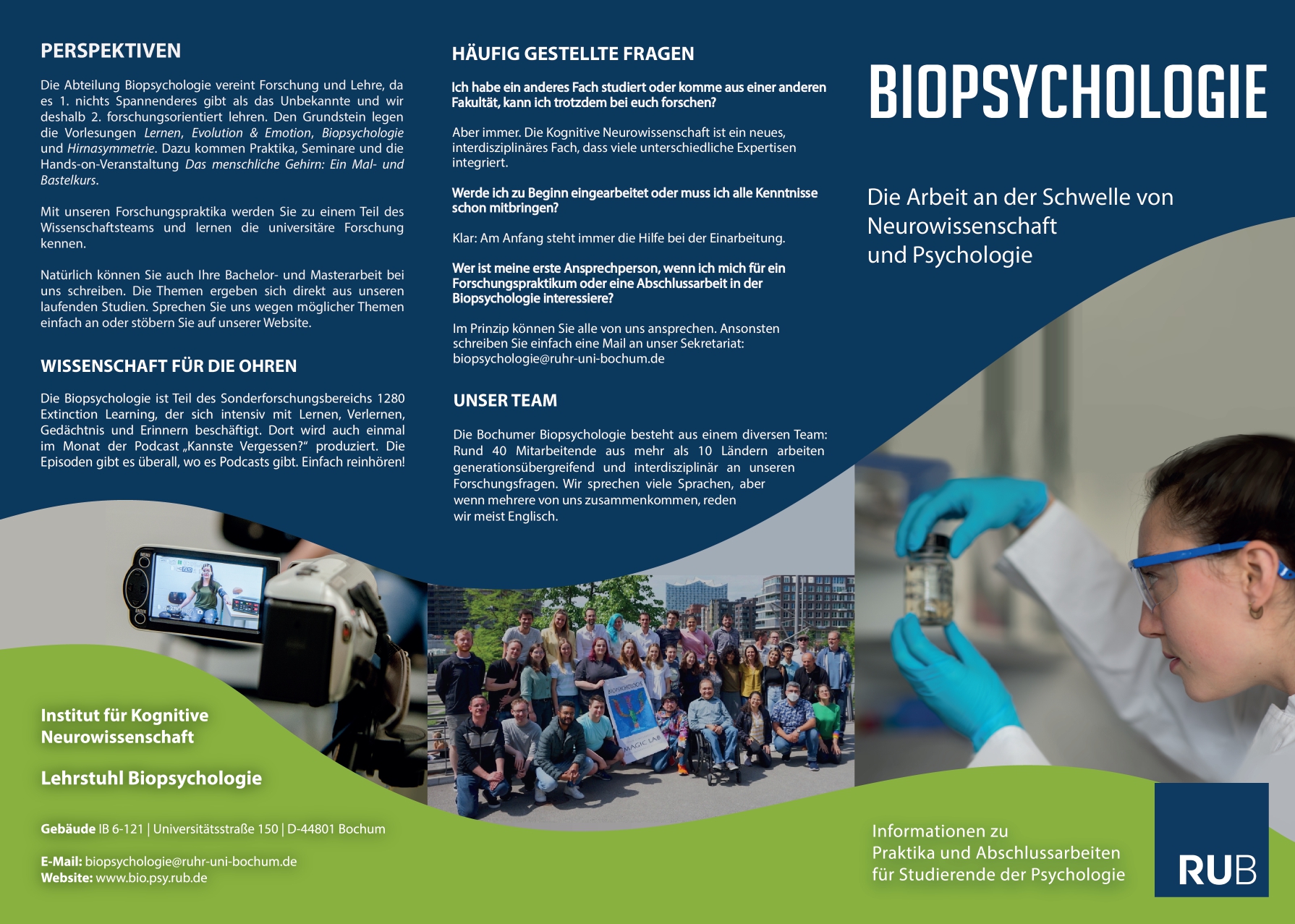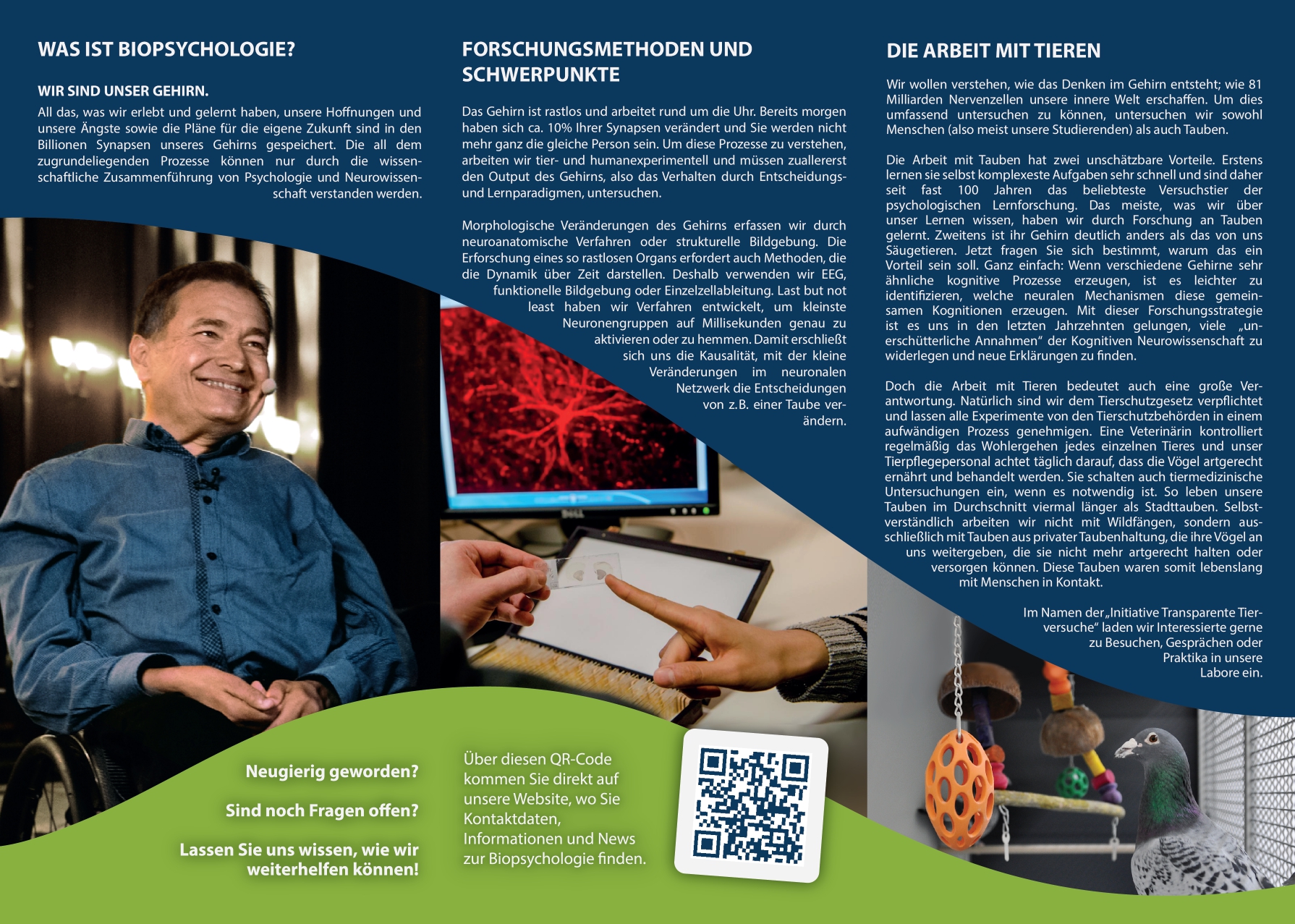You are interested in our research and would like to conduct your bachelor or master with us? Then do not hesitate to contact one of the scientists or Prof. Onur Güntürkün directly or by email. While we cannot guarantee you the possibility of a spot in all of our projects, we are happy to help you find a suitable topic for your thesis at our department.
Addresses, Emails and phone numbers of our team members can be found here.


thank you for your interest in our lab!
In the lab, we try to understand the mechanisms of brain asymmetries and cognition at the behavioral, physiological, and neuroanatomical level. We mostly work with pigeons and use behavioral, electrophysiological, molecular, imaging, and anatomical methods. If you have a preference regarding these specializations, please specify this in your application. Please take care that your English is spotless.
To apply for an internship, just send the following documents per e-mail to Anil Bayindir (Anil.Bayindir@ruhr-uni-bochum.de), who coordinates internships in our department
Please make sure to specify in your letter of application:
Please be aware that we do not provide any internship funding. It is crucial to note that for voluntary internships exceeding one month, we are legally obligated to retroactively compensate interns from the first day. Unfortunately, due to organizational reasons, our capacity to host voluntary interns is limited to one month unless they bring their own or external funding, such as through programs like Erasmus. Individuals with their own budget are welcome to extend their voluntary internship duration as desired. Such internships have no limit to duration!
We do not have a fixed amount of internship positions. An internship is possible as soon as a researcher is convinced that you could support his or her research agenda. Then this researcher becomes your supervisor throughout your stay. If none of the researchers of the lab is interested, we unfortunately cannot take you. You will receive feedback on whether or not we can offer you an internship within 4 weeks after your application.
If you have any further questions, don’t hesitate to contact Anil Bayindir.
Kind regards,
Onur Güntürkün